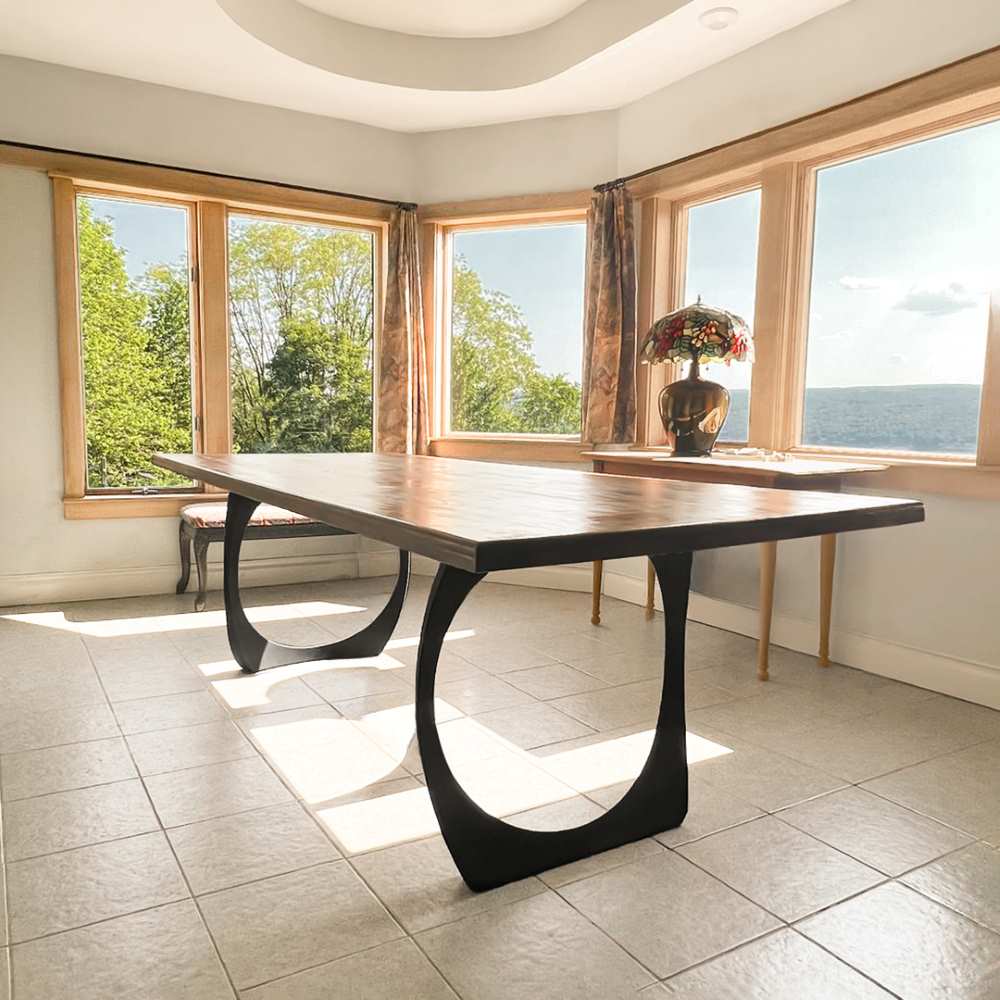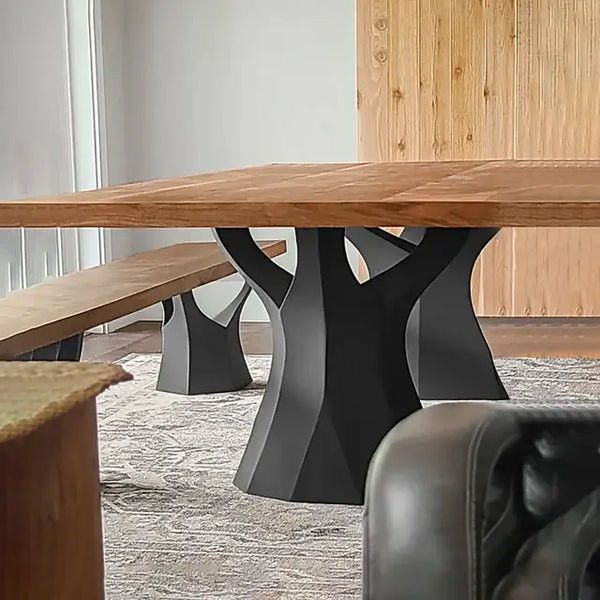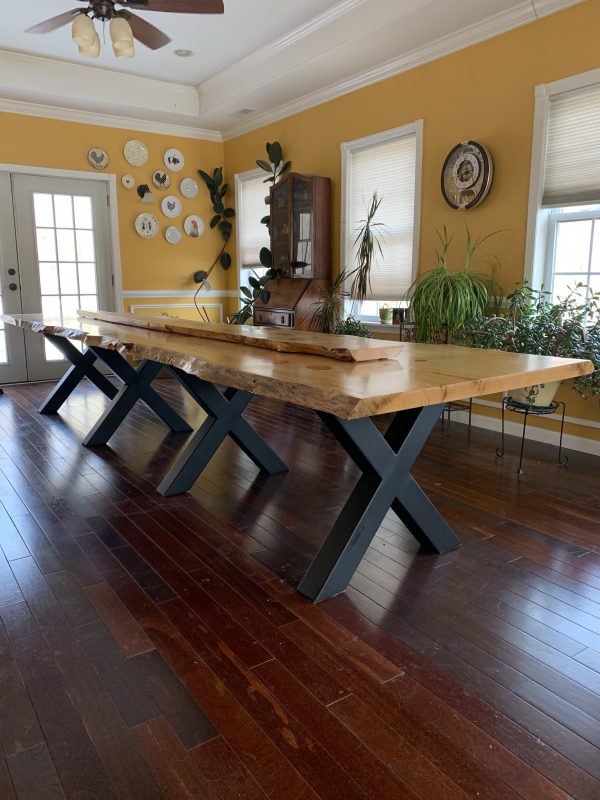How to Choose the Perfect Eating Space Table Legs for Your Home Design
Picking the excellent dining area table legs is a nuanced procedure that requires mindful consideration of different components, including your area restrictions, visual choices, and practical needs. The interaction between products, designs, and measurements can considerably affect the ambiance of your dining area, making it essential to approach this decision methodically.
Assess Your Eating Space
Examining your dining space is vital for picking the right table legs that enhance both looks and performance. Begin by measuring the dimensions of your dining location, including ceiling elevation, flooring space, and closeness to other furnishings. This details will certainly aid determine the suitable dimension and height of your table, which directly influences the selection of table legs.
Next, think about the design and design of your eating room. As an example, an open-concept design might take advantage of table legs that use aesthetic agility, such as slender metal or acrylic options. Alternatively, a much more standard setting might call for tough wood legs that offer a feeling of durability.
Evaluate the existing color combination and materials in your dining area. Balancing the table legs with these aspects produces a cohesive appearance that boosts the overall decoration. In addition, think of the capability required in your space. If you frequently hold huge events, think about legs that provide additional support and stability.
Eventually, a thorough assessment of your dining space will assist you in making an educated choice, making certain that your table legs not just enhance the aesthetic charm yet additionally offer practical functions.
Consider Your Design Preferences
When selecting dining-room table legs, it is important to review your individual design preferences, as they significantly affect the general visual of your dining area. Your selection of table legs can either complement or contrast with existing design, making it important to align them with your recommended interior decoration style.
If your home leans towards a contemporary aesthetic, take into consideration sleek metal or minimalist wooden legs that give a clean, uncluttered appearance. For an extra typical technique, elaborate wooden legs with elaborate makings can include a touch of sophistication and elegance. Industrial styles benefit from durable, basic materials such as reclaimed wood and steel mixes, mirroring a sturdy appeal.
In addition, farmhouse and rustic designs often prefer tough, chunky legs that evoke a feeling of heat and convenience. Conversely, if your decor is eclectic, you could pick non-traditional shapes or a mix of products to develop aesthetic passion.

Evaluate Material Options
The option of material for eating area table legs plays a pivotal duty in both durability and visual charm. Typical materials consist of wood, steel, and composite alternatives, each offering unique qualities that can affect the overall appearance and long life of your table.
Timber is a timeless choice, known for its warmth and adaptability. Woods like oak and walnut offer exceptional stamina and can be ended up in numerous discolorations to match any design. Softwoods like ache are much more prone to dents and scratches, making them less perfect for high-traffic locations.
Steel legs, typically crafted from steel or aluminum, emanate modernity and commercial beauty. They are very resilient and immune to put on, making them appropriate for families with kids or frequent gatherings (dining room table legs). Furthermore, metal can be finished in various shades, improving the modification opportunities
Composite products, such as MDF or laminate, offer price and diverse styles. While typically less durable than solid timber or metal, they can still give a fashionable appearance and are commonly very easy to keep.
Eventually, the material you pick must straighten with your lifestyle, aesthetic preferences, and the level of usage your table will experience.
Determine Elevation and Size
Choosing the proper elevation and dimension for your dining room table is necessary for both performance and comfort. The common elevation for dining tables usually varies from 28 to 30 inches, enabling ample legroom for many people when seated. Nonetheless, it is essential to think about the measurements of your dining area and the sorts of chairs you plan to utilize.

Furthermore, think about the proportions of your eating space. A bigger table in a sizable area can create a grand atmosphere, while a smaller sized table works well in more intimate settings. Ultimately, the right elevation look at here and dimension will harmonize with your total decor and improve the dining experience for you and your guests.
Explore Customization Possibilities

Furthermore, the layout of the legs can be tailored to fit different styles, such as rustic, modern-day, or commercial. Tapered legs can stimulate a mid-century modern feeling, while beefy, block-style legs might reverberate with standard or farmhouse style.
Property owners can also explore color finishes, from all-natural wood discolorations to paint, enabling them to match or contrast with the tabletop and bordering decor.
In addition, leg elevation can be gotten used to fit particular seating arrangements or individual choices, boosting both comfort and functionality.
Lastly, one-of-a-kind decorations, such as carvings or ornamental braces, can additionally personalize the table legs, making the dining experience not simply a statement but a meal piece in the home. By considering these personalization options, house owners can create a dining space table that truly shows their uniqueness.
Verdict
Selecting the ideal dining-room table legs needs mindful factor to consider of various elements, consisting of the dimensions of the eating area, style preferences, material longevity, and preferred elevation. Customization alternatives even more boost the ability to achieve a cohesive aesthetic that complements the total design. By systematically reviewing these components, homeowners can make certain that the selected table legs not only accomplish useful demands yet also add positively to the dining experience and ambiance of the home.
Choosing the ideal eating space table legs is a nuanced process that calls for careful consideration of different components, including your space restrictions, visual choices, and practical requirements.Examining your eating space is critical for choosing the right table legs that match both visual appeals and capability.When determining size, gauge the location where the table will be placed to ensure it fits pleasantly, permitting for at least 36 inches of clearance around the table for very easy movement. A bigger table in a sizable area can develop a grand atmosphere, while a smaller sized table works well in even more intimate setups.Selecting the ideal dining space table legs requires mindful consideration of numerous aspects, including the measurements of the eating room, look at more info design preferences, product toughness, and desired elevation.